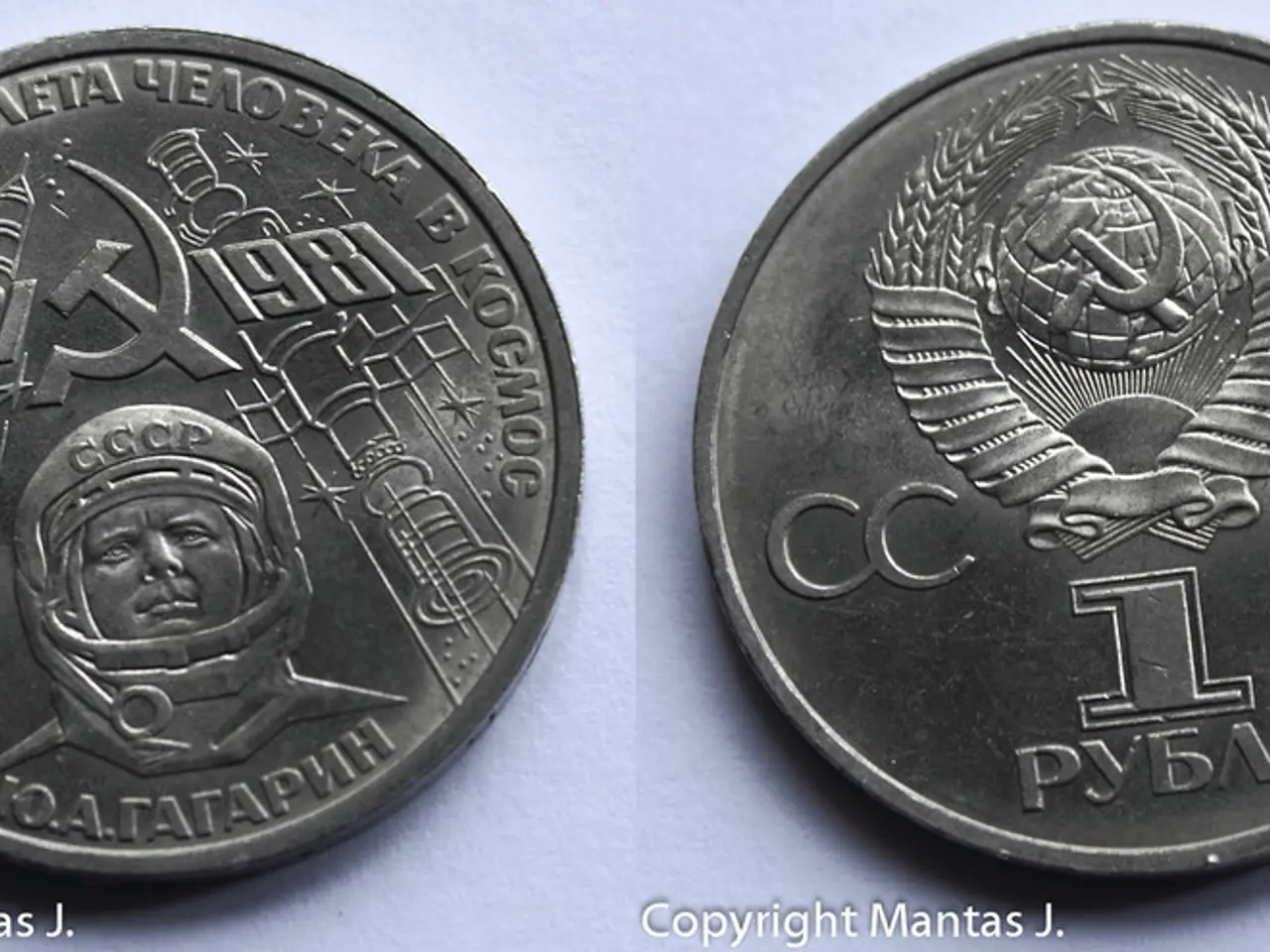Corporate Treasuries Considering a Move to Ripple's XRP After Success with Bitcoin and Ethereum
In the rapidly evolving world of cryptocurrencies, XRP, the third-largest digital asset by market capitalisation, finds itself playing catch-up with Bitcoin and Ethereum in terms of corporate treasury adoption.
The reasons for this disparity are multifaceted and interconnected.
Firstly, regulatory uncertainty surrounding XRP, due to its ongoing legal battle with the U.S. Securities and Exchange Commission (SEC), has created a cloud of doubt around its regulatory status. This uncertainty can deter corporate treasuries, which often prefer assets with clear regulatory standing to avoid compliance risks.
Secondly, Bitcoin and Ethereum have established themselves as widely recognised store-of-value and utility assets, respectively. Bitcoin, often referred to as "digital gold," is particularly attractive to corporate treasuries seeking a hedge or long-term reserve asset. Ethereum's robust ecosystem, particularly its smart contracts, adds to its appeal. In comparison, XRP, while fast and cost-effective for cross-border payments, is less widely perceived as a store-of-value or general treasury asset.
Thirdly, XRP's specialised role as a bridge currency for fast, affordable cross-border payments means it is more likely to be used for specific payment use cases rather than broad treasury holdings. This specialisation limits its role as a reserve asset.
Fourthly, Ripple's significant share of XRP (about 41%) and plans to lock up XRP could potentially boost price and adoption. However, this centralised control may deter corporates seeking decentralisation and predictability typical of Bitcoin and Ethereum holdings.
Lastly, while some companies are starting to adopt XRP for treasury purposes, such as Nature's Miracle, these are relatively few compared to Bitcoin and Ethereum holders. Regulatory progress and new laws, like the GENIUS Act, are expected to encourage wider crypto treasury adoption, but XRP still trails in scale and recognition.
Despite a micro-cap company announcing a $20 million XRP treasury reserve strategy, it is unlikely that XRP will be actively held for any sustained period by non-financial or financial-based public companies.
The concept of the Bitcoin treasury strategy was pioneered by MicroStrategy (MSTR), which began purchasing Bitcoin in August 2020. Some companies have since followed suit, with Ethereum gaining attention from Bitmine Immersion Technologies and SharpLink Gaming, holding significant amounts of Ethereum.
There is a possibility of the SEC approving a spot XRP exchange-traded fund (ETF), which could lead to significant cash inflows. However, the regulatory landscape for XRP remains complex, and its future as a corporate treasury asset is uncertain.
[1] https://www.ripple.com/insights/why-is-xrp-valuable/ [2] https://www.ripple.com/insights/ripple-and-xrp-are-not-the-same-thing/ [3] https://www.ripple.com/insights/what-is-ripple-xcurrent/
- The regulatory uncertainty surrounding XRP, due to its ongoing legal battle with the U.S. Securities and Exchange Commission (SEC), discourages corporate treasuries from investing in XRP, as they tend to prefer assets with clear regulatory standing to avoid compliance risks.
- Despite a few companies adopting XRP for treasury purposes, such as Nature's Miracle, corporate treasuries are more likely to invest in Bitcoin or Ethereum, given these digital assets' established status as store-of-value and utility assets, respectively.




